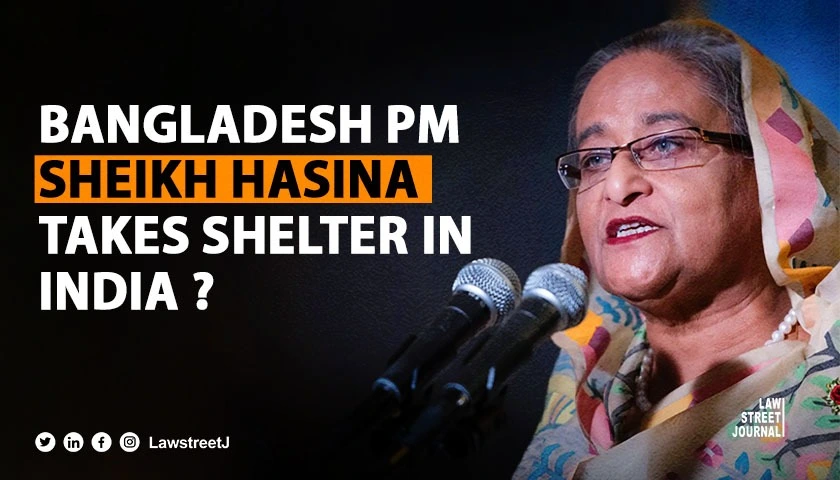New Delhi: Bangladesh Prime Minister Sheikh Hasina has resigned following a 45-minute ultimatum from the Bangladesh Army, as per reports. According to AFP, she left Dhaka amid violent protests and is reportedly heading to India. "She and her sister have left Ganabhaban (the Prime Minister's official residence) for a safer place," a source told AFP.
ANI reported that Hasina departed from Bangabhaban around 2:30 PM on Monday via military helicopter, accompanied by her younger sister, Sheikh Rehana, to a "safer place."
Background of Protests
The ultimatum from the Bangladesh Army came in the wake of escalating protests. Last month, at least 150 people were killed and thousands injured during violence initiated by student groups protesting against reserved quotas in government jobs. The 'Students Against Discrimination' group, which led the previous job quota protests, has been at the forefront of the latest demonstrations.
Resumption of Protests
The protests paused after the Supreme Court scrapped most quotas on July 21. However, protesters returned last week, demanding a public apology from Hasina, restoration of internet connections, reopening of educational institutions, and the release of detained individuals. Over the weekend, the demonstrations evolved into a campaign demanding Hasina's resignation and justice for those killed last month. The students' group announced a nationwide non-cooperation movement starting Sunday with a single agenda: Hasina must step down.
Blame-Game and Government's Response
Critics blame Hasina's government for the violence in July. Rights groups and her opponents accuse the government of using excessive force against protesters, a claim the government denies. Initially, Hasina's government attributed the violence during the quota protests to the Islamic party, Jamaat-e-Islami, and the main opposition Bangladesh Nationalist Party (BNP), not the students. However, after violence erupted again on Sunday,
Hasina stated, "those who are carrying out violence are not students but terrorists who are out to destabilise the nation."
The students' group has rejected Hasina's offer for talks. Protests began at university campuses in June after the High Court reinstated a quota system for government jobs, overturning a 2018 decision by Hasina's government to eliminate it. The Supreme Court later suspended the High Court order and dismissed it last month, directing that 93% of jobs should be open to merit-based candidates.
Experts link the current unrest in Bangladesh to stagnant job growth in the private sector, making public sector jobs with regular wage hikes and privileges more attractive. The quotas angered students facing high youth unemployment, with nearly 32 million young people out of work or education in a population of 170 million. The once-booming economy, driven by the garment sector, has stagnated, with inflation around 10% per annum and dwindling dollar reserves.








![CJI cites Bangladesh to highlight importance of liberty [Read Speech]](/secure/uploads/2024/08/lj_1548_CJI_Bangladesh.webp)







